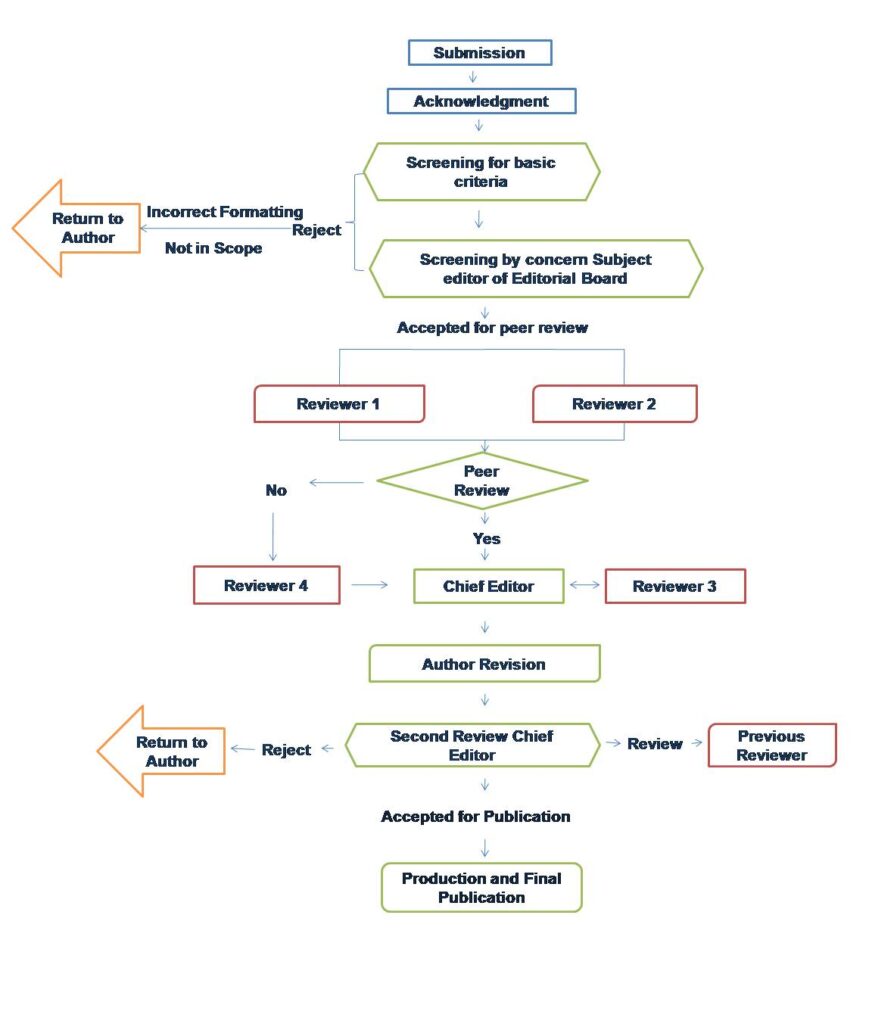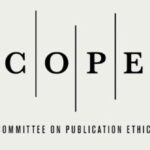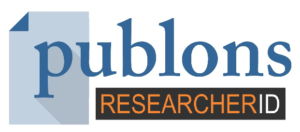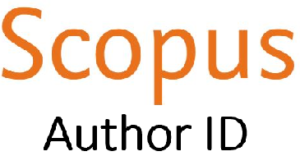Peer Review Policies
Science Archives follows a double-blind review process. The peer reviewers are responsible to read and evaluate a manuscript in their desired area of study, and then providing honest feedback to authors about their submission. Reviewers can decline the review process if any conflict exists. Reviews should not influence by gender, race, ethnicity, or citizenry of the author, Religious, political, or cultural viewpoint of the author.
Credits
This peer-review procedure is based on https://www.elsevier.com/en-gb/reviewers/what-is-peer-review

Publication Ethics and Malpractice Statement
The Journal is committed to upholding the Principles and guidelines of Transparency and Best Practice in Scholarly Publishing, as recommended by the COMMITTEE ON PUBLICATION ETHICS (COPE) (http://publicationethics.org/resources/guidelines) and other pertinent international bodies and agencies, including the ELSEVIER Publishing Ethics Resource Kit (PERK) (Content Policy and Selection Guide).
Publication Ethics for Authors
Authorship Guidelines: Credit for authorship should be contingent on a significant contribution to the study’s execution. Merely participating in securing funding or data collection does not qualify for authorship. Merely overseeing the research group in a general capacity is insufficient for authorship recognition. Each contributor should have played a substantial role in the work, warranting public responsibility for specific portions of the content. The sequence in which contributors are named should reflect their relative contributions to the study and manuscript preparation. Once the manuscript is submitted, the order cannot be altered without written consent from all contributors.
COPE Recommendation for Changes in authorship issues
- Corresponding author requests removal of author before publication
- Corresponding author requests addition of extra author before publication
- Recommendation against suspect ghost, guest or gift authorship
- Request for addition of extra author after publication
- Request for removal of author after publication
COPE Recommendation for suspect redundant/duplicate publication
- Suspected redundant publication in a submitted manuscript
- Suspected redundant publication in a published manuscript
Conflicts of Interest and Financial Disclosures
Conflicts of interest can encompass financial, academic, commercial, political, or personal affiliations. Financial interests may involve employment, research funding (received or pending), ownership of stocks or shares, patents, compensation for lectures or travel, consultancy roles, non-financial support, or any fiduciary association with a company. When any author has such financial or personal obligations, they are obligated to disclose potential conflicts of interest. This disclosure should include financial interests and relevant affiliations (other than those listed on the manuscript’s title page) pertaining to the subject of their manuscript. For all accepted manuscripts, authors must declare any conflicts of interest at the end of the manuscript before publication. Authors without any conflicts of interest should include a statement confirming the absence of such conflicts.
COPE Recommendation for Conflict of Interest
- Undisclosed conflict of interest (CoI) in a published article
- Undisclosed conflict of interest (Col) in a submitted manuscript
Funding/Support and Sponsorship Role
In the Acknowledgment section of the manuscript, all authors who have received financial support for their research and publication endeavors should be explicitly mentioned.
Data Access and Responsibility
Irrespective of the funding source, for any manuscript containing original data, the corresponding author is required to state in the acknowledgment section that they “had complete access to all the data in the study and assume responsibility for the data’s integrity and the accuracy of the data analysis.” Altered or generic statements suggesting that all authors had such access are not permissible.
Acknowledgment Section
The acknowledgment section is positioned at the conclusion of the manuscript text but preceding the reference section. It includes a list of contributors, details regarding author data access, disclosures of conflicts of interest, encompassing financial interests and relationships, as well as information about sources of funding and support. Authors are required to secure written permission from all individuals whose names are included in the acknowledgment section, and the corresponding author must affirm in the Authorship Form that such permission has been obtained.
Plagiarism Policy
All manuscript published by Journal is committed to publishing only original research/scientific contents that have neither been published elsewhere nor is under review elsewhere. If the plagiarism content is observed by the managing editor/editorial team at any stage of the publication process will be informed to the author to rewrite/or will be rejected for publication.
COPE Recommendation for Plagiarism
Ethical Approval for Studies and Informed Consent
In all manuscripts presenting data from studies involving human participants or animals, there is a requirement for formal review and approval, or a formal review and waiver, by an appropriate institutional review board or ethics committee. When human subjects are involved, the Methods section should specify whether oral or written informed consent was obtained from the study participants. Editors have the prerogative to request authors to furnish documentation demonstrating formal review and recommendations from the institutional review board or ethics committee tasked with supervising the study.
Editorial Ethics
The Editorial board plays a pivotal role in the publication process, where the Editor-in-Chief and editorial members are responsible for determining which articles should be published. In the Journal, the decision to publish is exclusively based on the academic merits of the evaluated manuscripts. Members of the Journal editorial team are expected to adhere to the following ethical guidelines:
- Intellectual Property and Confidentiality: Editors must strictly adhere to intellectual property rights and refrain from using unpublished, submitted information for personal gain without the author’s consent.
- Impartial Decision-Making: Editorial decisions on manuscripts should be solely based on scientific content and merit. Race, gender, sexual orientation, religious beliefs, ethnic origin, citizenship, or political philosophy of the authors should not influence these decisions.
- Confidentiality: Any manuscript received by an editorial member is to be treated as a confidential document. Information about submitted manuscripts should not be discussed or disclosed to anyone other than the corresponding author or their authorized representative. Any ideas or information obtained during the manuscript review process must be kept confidential and should not be exploited for personal gain.
- Conflict of Interest: Editors should not handle manuscripts in which they have a conflict of interest stemming from competitive, collaborative, or other relationships or connections with the authors, companies, or potentially related institutions associated with the papers. In such cases, editors are required to declare any conflicts of interest.
- Handling Misconduct: Editors should take misconduct seriously, particularly when ethical complaints are received concerning breaches of confidentiality, plagiarism, non-disclosure of conflicts of interest or financial disclosures, inappropriate use of confidential material, or delays in peer review for competitive advantage.
Open Access Policy Journal provides instant free open access to its content on the principle that making research freely available to the researchers nationally and internationally. No registration is required to access the full PDF of the articles.
Copyright Policy
Copyright on any open access article published in Microbial Science Archives is retained by the author(s). Authors grant Microbial Science Archives a license to publish the article and identify itself as the original publisher. Authors also grant any third party the right to use the article freely as long as its integrity is maintained and its original authors, citation details and publisher are identified.
Creative Commons License
All the Articles published in Journal are licensed under a Creative Commons Attribution 4.0 International License
Based on a work at https://cae.sciencearchives.org/
Correction Policy
Authors should promptly notify the journal’s Editor by email of any errors in their published article. Corrections are made at the discretion of the journal and are accompanied by a correction notice. The correction is integrated into the article, and a corrected version is added as an erratum.
Retraction Policy
Retractions are considered in cases of unreliable data, plagiarism, duplicate publication, or unethical research. An expression of concern may be issued during investigations. Retraction notices explain the reason for the retraction. The PDF is replaced with a watermarked “Retracted” version, with the original text accessible. In cases requiring content removal for legal reasons, metadata (title and authors) remain with a note about removal. A retraction notice is also published online.
Plagiarism Policy All manuscript published by Science Archives: An International Journal of Scientific research is committed to publishing only original research/scientific contents that have neither been published elsewhere nor is under review elsewhere. If the plagiarism content is observed by the managing editor/editorial team at any stage of the publication process will be informed to the author to rewrite/or will be rejected for publication.
Open Access Policy Science Archives provides instant free open access to its content on the principle that making research freely available to the researchers nationally and internationally. No registration is required to access the full PDF of the articles.














